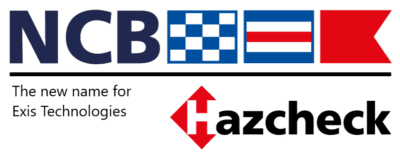Limited Quantities – TT Talk
Non-declared or mis-declared cargo entered into the international supply chain, vastly increases the risk to cargo, property, the environment and most importantly the lives of all individuals moving the goods.
While problematic for all categories of cargo, classified dangerous goods (DG) in particular pose the greatest challenges. The correct declaration of cargo is dependent on several factors, including expertise, knowledge and training. Ignorance of the underpinning regulations, and for international shipments, how those regulations interact with one another has the potential to result in unintentional mis-declaration.
Compliance however also requires that stakeholders are motivated to do the right thing. A recent survey suggested that 33% of mis-declaration was willful. Factors giving rise to these decisions include circumventing restrictions on the carriage of a particular commodity and financial gain, in the avoidance of the applicable DG surcharge.
Degrees of culpability?
Methods of mis-declaration vary, which makes policing activity even more challenging. Shippers are known to alter the safety data sheet (SDS), use a less well known (or entirely incorrect) synonym as disguise or take advantage of special provisions, exempting the goods from the full application of the relevant regulations.
Goods may also be shipped under the provisions of limited quantities (LQ), partly taking the goods outside of the application of the relevant DG regulatory requirements, thus avoiding or attracting a lower surcharge. The LQ provisions are frequently misunderstood. ADR and the IMDG Code set out specific provisions, applicable to the carriage of certain classes of DG in limited quantities. The applicable quantity limit for the inner packaging or article is specified for each substance in Column 7a of Table A of Chapter 3.2 (the Dangerous Goods List). Important to highlight, is that the value “0” in Column 7a, indicates that a particular substance is not permitted to be carried under the LQ provisions.
“The limited quantities provisions are frequently misunderstood”
DG packed in limited quantities, which meet the criteria of the LQ provisions, largely but not entirely, fall outside of the other provisions of ADR and the IMDG Code. In practice, the LQ provisions allow certain DG to be packed in inner packagings and placed in suitable outer packagings. This might for instance be 500ml bottles of household bleach, packed in boxes of 10. The principle being that, in the event that the cargo transport unit, the pallet or even the outer packaging becomes damaged, there is a low probability that all of the inner packages would leak. Under the regulations, the total gross mass of each package shall not exceed 30kg (or 20kgs for those shipped in shrink-wrapped trays). By way of illustration, the exact same substance, when shipped in 20l packages, would not be permitted to ship under the LQ provisions.
Compliance still required
It is of importance to stress that shipping goods under the LQ provisions does not mean that adherence to certain regulatory provisions is not required. Training, under Chapter 1.3 of IMDG, for example, is still required for all persons employed, including shippers and packers, whose duties concern the transport of DG, LQ or otherwise. Training shall include the requirements governing the transport of such goods appropriate to the persons responsibilities and duties.
Similarly, the cargo classification provisions remain applicable, as do requirements concerning appropriate packaging, filling provisions and leakproofness. Shipments by sea still require a ‘container/vehicle packing certificate’. The certificate shall specify amongst other requirements that the packages are correctly segregated where appropriate, that the packages are not damaged or leaking and that the correct labels and marks are in place.
The LQ provisions are not a mechanism by which DG can simply be declared and placed into the supply chain as though they fall entirely outside of the scope of the applicable regulations.
Through good fortune, lack of effective identification and accountability, those who are motivated to mis-declare cargo when placing it into the supply chain may undoubtedly gain. Over time, the foundation of their respective business models and contracts become based on the cost savings derived from mis-declaration, undermining any safety culture. What may at the outset have been viewed as taking a risk becomes normal practice.
In recognition of challenges faced by stakeholders in the supply chain, DG software platforms continue to be developed. One such platform is EXIS Technologies’ Hazcheck Detect, a cargo screening solution that scans all booking details for keywords, validates against rules and highlights suspicious bookings to identify mis-declared and non-declared DG. As software applications become ever more sophisticated, while not themselves intelligent, they become vital tools in the armoury in safeguarding every aspect of the supply chain and delivery certainty of outcome.
Peregrine Storrs-Fox
Risk Management Director
TT Club








